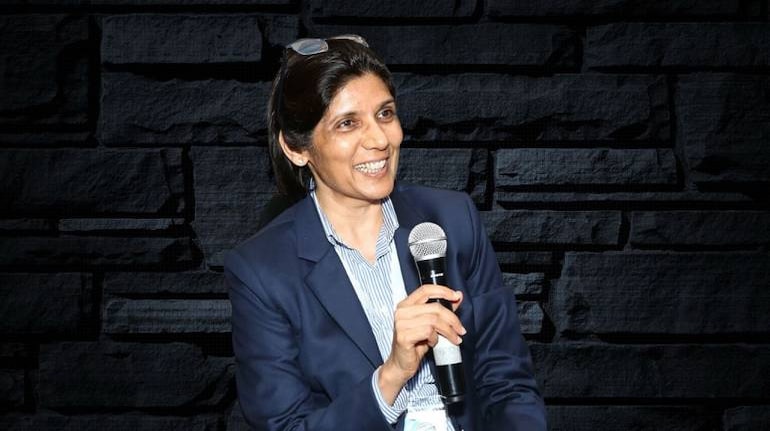
It is India's hour to shine, but will it?
If India manages to overcome its long-pending issues around multiple approvals, licenses, permits, an overload of documentation and reporting, then India has a chance to leave an indelible mark on global trade in the coming decade.
by Moneycontrol ContributorBy Ameeta V Duggal
Our lives today are shrouded in uncertainty barring the one certainty that, post Covid-19, the world, as we have known, will not be the same. One of the expected changes is the shuffle in the economic powers where the, thus far, supremacy of the United States and China may no longer exist.
What commenced with the US-China trade war may well be sealed by COVID-19 and its impact on the world at large. Arguably, China’s lack of transparency in handling the pandemic and the disruption in the supply chain of the foreign firms has changed the global trade scenario.
India - an emerging economic superpower
In this shifting of the tectonic plates, India is very advantageously positioned to secure its position as an emerging economic superpower. The low-lying fruit is the businesses currently looking to move out of China. Reportedly, almost 100 US companies across sectors like electronics, defence, aviation, pharmaceuticals and logistics, including Lockheed Martin, Honeywell, Cisco, UPS and Fedex are currently engaged with the government to shift their base from China to India.
For such businesses, India can be an obvious alternative, provided the government can offer India as an attractive investment destination, including, efficient processes and investment incentives that are WTO compliant.
Government’s efforts to develop 4.6 lakh hectares of land, offer fiscal incentives in the form of preferential tax rates, tax holidays etc. are good initiatives towards attracting foreign investment.
However, these initiatives are tarnished with India’s image of being a protectionist economy. This image needs to be shed in favour of an open economy to counter global protectionism. India must move towards lowering its tariff and non-tariff barriers, increase competitiveness of the domestic producers and encourage them to meet global standards.
Foreign Direct Investment (FDI) in strategic sectors
The Finance Minister, while presenting her latest fiscal stimulus, announced the FDI hike in defence manufacturing from the existing 49% to 75% under the automatic route.
The government had been deliberating over this relaxation, defence manufacturing being highly technology driven and capital intensive and manufacturing within the country with foreign capital is only pragmatic. That it chose to announce it as part of its latest stimulus package was unexpected but good news for the foreign investors.
Earlier this year, the Budget highlighted India’s dream of becoming a $5 trillion economy with a defence export target worth $5 billion in the next five years. This FDI hike can potentially give defence exports the necessary boost and augment India’s chances of becoming a FDI-led defence manufacturing hub. If the global defence manufacturers do shift their manufacturing base to India, it will logically result in the creation of millions of jobs. The future looks promising enough.
FDI vis-a-vis Ease of Doing Business
To attract and retain foreign investment in a strategic sector like defence, India must ensure a conducive, efficient and favourable business environment. India has been progressively improving its ranking in the World Bank's Ease of Doing Business report. However, this ease is scarcely visible on the ground with multiple approvals, licenses, permits, an overload of documentation and reporting.
Since the recently announced FDI hike is in defence manufacturing, it brings into focus India’s preparedness (or lack thereof) for efficient and seamless exports in strategic sectors. If the objective of this FDI hike is indeed to augment defence exports, then there is an emergent need to review the extant export control regulatory regime. India cannot afford to continue with its cautious, process driven approach if it truly wants to promote its defence exports and achieve the $5 billion target.
The lack of Ease in Doing business is palpable in the regulatory regime concerning export controls. To give the devil its due, recent times have witnessed some enabling policies and a rationalised, liberal licensing regime, making licensing less onerous on the industry while ensuring compliance with India’s international obligations.
However, the changes have largely been reactionary sans much thought being spared to the larger picture. The fundamental missing link is a structured mechanism to involve stakeholders in the legislative process.
India can ill-afford to continue with this fragmented approach. If the FDI hike in the defence manufacturing sector is to be a success, it is critical for the government to review (possibly overhaul) the regulatory process concerning export controls.
Some of the focus areas would be to do away with multiple licensing agencies, bearing in mind that defence manufacturing mandates an Industrial License, which involves a thorough background check of the applicant; global and long-term export authorisations; expedited approval process; a single digital platform across licensing authorities; reasoned demand for documentation submission and transparency.
This is India’s hour to shine bright as an economic superpower and India must act fast to change its image from a procrastinating system to becoming an efficient and business friendly system. If India succeeds in doing so then this decade and more are India’s to leave an indelible mark in global trade.
(Ameeta Verma Duggal is the co-author of ‘Export Controls in India – Law & Procedures’ and the founder partner of DGS Associates, a New Delhi-based law firm that offers legal services to corporates in the areas of trade, export controls, civil aviation, telecom, litigation and arbitration. Ameeta heads the trade laws practice of the firm)
Moneycontrol Ready Reckoner
Now that payment deadlines have been relaxed due to COVID-19, the Moneycontrol Ready Reckoner will help keep your date with insurance premiums, tax-saving investments and EMIs, among others.
Download a copy Get best insights into Options Trading. Join the webinar by Mr. Vishal B Malkan on May 28 only on Moneycontrol. Register Now!